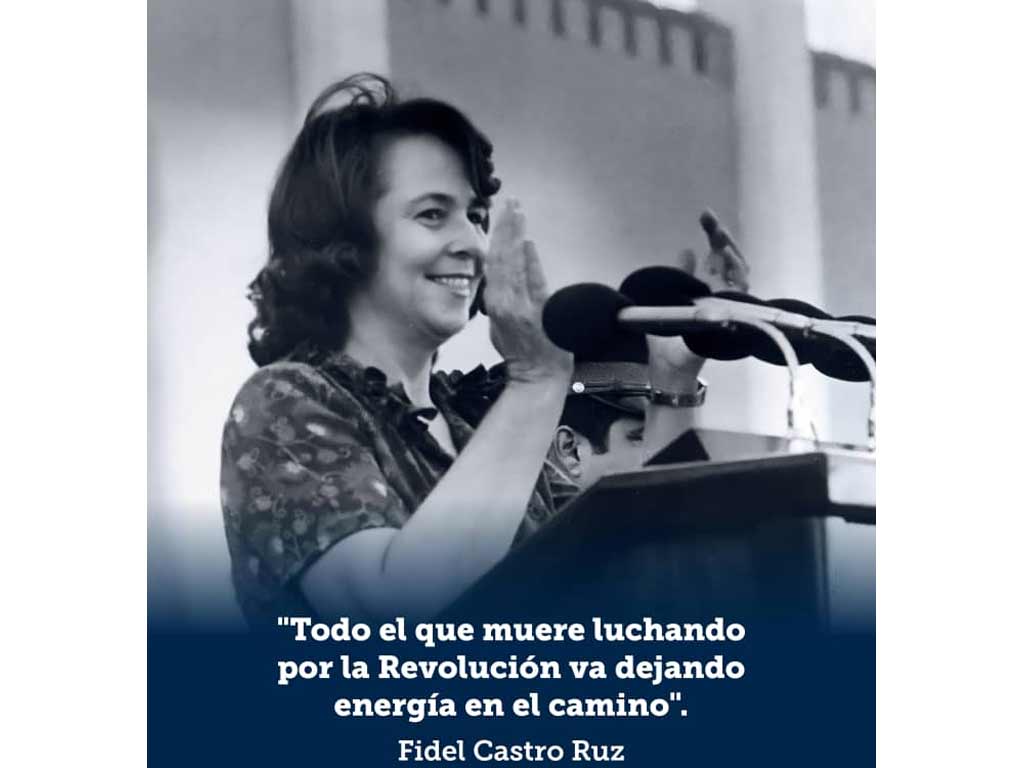“On June 18, 2007, Cuba lost one of its most beloved and bravest women, a sweet, intelligent and radical heroine. Clandestine, bold, a guerrilla fighter, wife, mother, and feminist leader,” the president wrote on Twitter.
Diaz-Canel also recalled the historic leader of the Cuban Revolution, Fidel Castro, who said that “everyone who dies fighting for the Revolution leaves energy along the way.”
Prime Minister Manuel Marrero, in turn, described Vilma on Twitter as a heroine of the mountains and the plains, an unparalleled woman, sweet and unconditional to the revolutionary process in Cuba.
Vilma, whose nom de guerre was Deborah, had an active participation in the 26th of July revolutionary movement and in the fight against the Fulgencio Batista dictatorship (1952-1958).
She was an outstanding clandestine combatant under the orders of Frank Pais, especially during the November 30, 1956, uprising in eastern Santiago de Cuba province.
In 1958, she joined the Rebel Army, in which she continued to stand out for the tasks of coordinating the clandestine movement and for her actions in the Frank Pais Second Eastern Front.
Vilma, who was a chemical engineer by profession, took her scientific knowledge to practical actions for the benefit of society, and after the triumph of the Cuban Revolution on January 1, 1959, she led the main political actions of the country to materialize women’s full access of women to their rights.
Due to her work in this area, she is recognized as the eternal president of the Cuban Women’s Federation (FMC).
jg/ode/mpp









